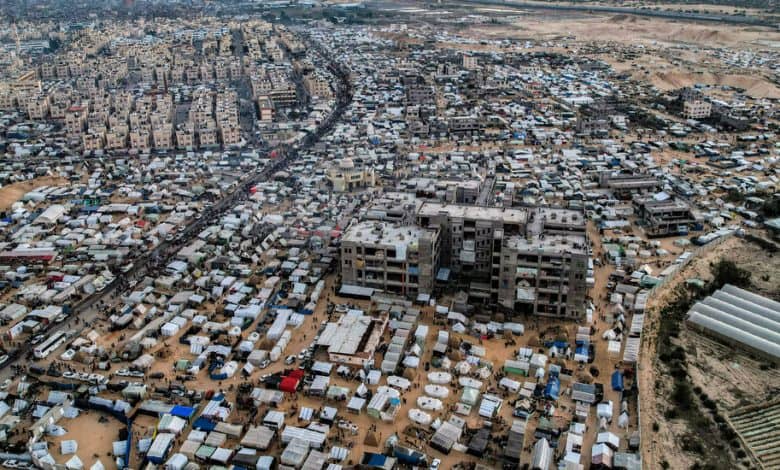Netanyahu says Israeli forces will soon enter Rafah.

Israel’s prime minister said the military would soon go into to an area of Gaza near the border with Egypt where hundreds of thousands of displaced Palestinians have fled, something the United Nations has said would be catastrophic.
Gazan health officials say that more than 27,000 people — many of them women and children — have been killed in Israel’s bombardment and ground assault of Gaza since the Hamas-led attack on Oct. 7. Prime Minister Benjamin Netanyahu said on Wednesday that Israeli troops had been directed to deploy in Rafah, near the southern border, and in camps in central Gaza, calling the areas “Hamas’s last remaining strongholds.”
Fighting in Rafah could worsen the humanitarian situation there, said Jens Laerke, a spokesman for the United Nations Office for the Coordination of Humanitarian Affairs. It could lead to a “large-scale loss of civilian lives,” he said on Tuesday.
As the Israeli military has expanded its assault into southern cities such as Khan Younis in recent months, more than half of Gaza’s population — 1.4 million Palestinians — has fled to Rafah and struggled to find food and shelter, according to the main United Nations agency that aids Palestinian refugees in Gaza, known as UNRWA.
Many Palestinians say that Rafah — or any part of Gaza — is no longer safe. After several moves in search of safety over the past four months, many have been left terrified and exhausted.
The U.S. secretary of state, Antony J. Blinken, who is on his fifth trip to the Middle East since Oct. 7, said on Wednesday that it was especially important to protect civilians in Rafah.
“Israel has the responsibility, has the obligation, to do everything possible to ensure that civilians are protected and that they get the assistance they need in the course of this conflict,” Mr. Blinken said during his visit to Israel. He made stops this week in Saudi Arabia, Qatar and Egypt to support negotiations for a cease-fire that could free the remaining hostages held in Gaza and allow for more humanitarian aid to reach Palestinians.
In an address on Wednesday to the U.N. General Assembly, António Guterres, the U.N.’s secretary general, called the situation in Gaza “a festering wound on our collective conscience that threatens the entire region,” and said he was especially alarmed by reports that the Israeli military intends to advance on Rafah.
Such an action, he said, would only worsen what is already a humanitarian nightmare with untold regional consequences. “It is time for an immediate humanitarian cease-fire, and the immediate and unconditional release of all hostages,” Mr. Guterres said.
“We can make clear what the law says. Under international humanitarian law, indiscriminate bombing of densely populated areas may amount to war crimes,” Mr. Laerke told reporters in Geneva.
More than half of Gaza’s buildings are damaged or destroyed, Palestinian officials say, forcing millions of Palestinians to flee their homes and seek shelter elsewhere.
